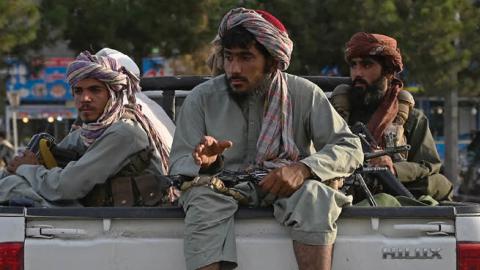The chaotic withdrawal of U.S. troops from Afghanistan, which led to the collapse of a government with which we had fought for two decades, has produced a humanitarian and geostrategic catastrophe. While the immediate crisis should be our central focus at this time, our self-inflicted defeat will have five long-term consequences that risks diminishing America’s infuence in the world.
First, the bedlam in Kabul has added to the nagging sense of American decline that has been simmering for years. It drove a stake through one of the few remaining illusions about the United States: that we remained a competent nation, one that managed to get things done. This is no longer the case.
“I don’t have the capability” to help stranded Americans by extending operations into Kabul, said Secretary of Defense Lloyd Austin, who presides over the world’s preeminent military force and a defense establishment of some $700 billion dollars. Combined with President Biden’s astounding remarks about desperate stowaways clinging to the fuselage of American aircraft — dismissing the incident as unimportant because it happened “four days ago, five days ago” — this incompetence is colored by heartlessness.
This combination of incompetence and callousness corrodes another illusion: that America seeks to be a beacon of hope and a partner for those striving for a better life. America’s support for liberty and respect for human life has always been an easy target of critics on the right and the left. For some on the right, advocating for human rights was a fruitless effort to impose American values; for some on the left, it was a mask for American imperialism, a naïve belief in universalism, or a task relegated to multilateral institutions with little real power — or will.
The reality was always somewhere in the middle. As the 2017 National Security Strategy noted, “No nation can unilaterally alleviate all human suffering, but just because we cannot help everyone does not mean that we should stop trying to help anyone. For much of the world, America’s liberties are inspirational, and the United States will always stand with those who seek freedom.”
Today, Biden’s actions in Afghanistan speak louder than his words and starkly contradict the administration’s slogans about promoting “gender equity” and pursuing a “Build Back Better World” agenda — objectives cited in the most recent G7 communique.
Third, our alliances have been damaged by the administration’s careless actions. Alliances provide economic, political and military “strategic depth” for the United States — in other words, they offer us options, while complicating the choices of our adversaries. While alliances of democratic powers involve working through the messiness of our political systems, they remain a competitive advantage for the United States.
For years, critics railed against former President Trump as he sharply cajoled allies to step up and do more. But Biden’s failure to consult our NATO allies — who had forces and personnel on the ground — reveals the hollowness of his claim that “diplomacy is back.” White House negligence put allied troops in harm’s way and could lead to serious fractures in NATO. American requests will be met with hardened disdain by our NATO partners, and European governments will remain ambivalent regarding military and defense spending.
Fourth, the debacle has created the conditions for the resurgence of a jihadist state in the middle of Central Asia. While many expert analysts like to parse the differences across various terrorist groups, jihadists around the world are rejoicing. Under a Taliban government, they will have the resources — including captured U.S. military equipment — and a geographic location from which to project power and rebuild their operational capacity. According to one estimate, “the Taliban are believed to control more than 2,000 armored vehicles, including U.S. Humvees, and up to 40 aircraft, potentially including UH-60 Black Hawks, scout attack helicopters and ScanEagle military drones.”
Having shattered the trust of current and potential on-the-ground partners in the region, President Biden’s quixotic promises of “over-the-horizon” counterterrorism (CT) operations are bizarre: the White House just destroyed the CT mission under way.
Fifth, and possibly most significantly, Biden’s chaotic withdrawal presents new opportunities for our strategic rivals. For the Chinese Communist Party (CCP), the debacle is a net gain. CCP officials already have begun negotiating with the Taliban to advance Chinese interests — to include further access to Afghanistan’s vast strategic mineral deposits. Estimates suggest that Afghans could be sitting on top of $1 trillion in minerals, including the world’s largest deposits of lithium, a vital input for the batteries needed to power the electric vehicles that Biden’s White House is prioritizing. In addition, Beijing will use its bolstered position in Central Asia to further consolidate its Belt and Road Initiative.
While there are no silver linings of the debacle in Afghanistan, perhaps at least more Americans will once again become aware that we live in a dangerous world, and that messy conflicts do not simply disappear when we refuse to acknowledge them.
Read in The Hill

















